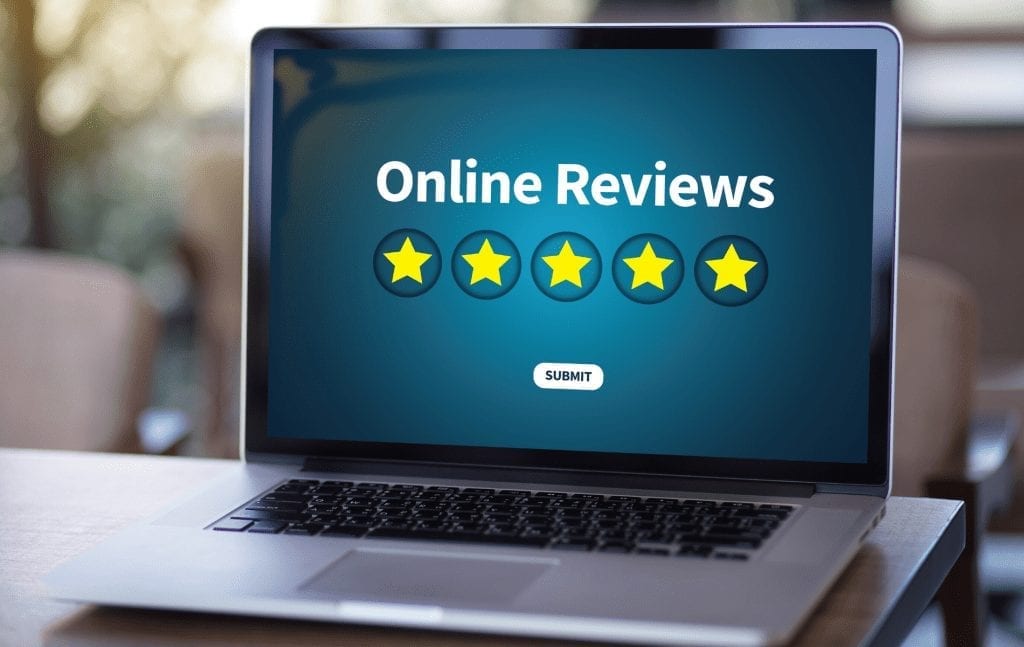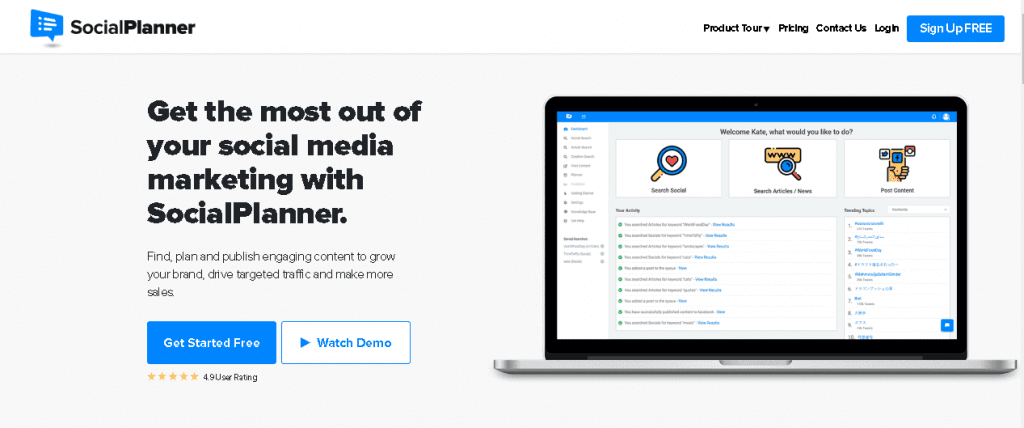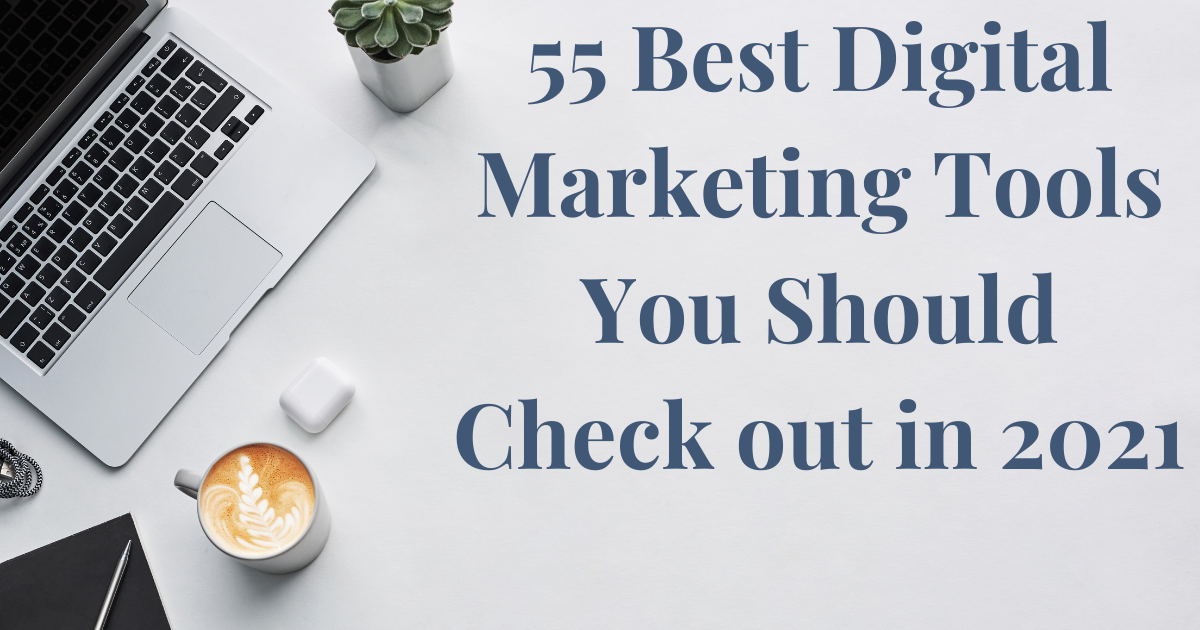Online Reputation Management – The Why And How (2023)
Online reputation management is something that all companies and brands should be concerned with. The way people see you is vital and can make or break your reputation. Any company that is doing digital marketing and using social media platforms need to have a plan for reputation management.
There are many ways to react to online reviews and comments without losing any professionality. That’s what we will be discussing in this guide.
What Exactly Is Your Online Reputation?
How the world perceives your business is determined by your online reputation. We live in a digital age where almost all information is on the internet.
That includes information about companies and how they handle clients and conduct business.
In most cases, it’s reviews that influence your online reputation.
More than 70% of customers won’t support a business until they’ve read some reviews about them.
So much faith is put in online reviews that some millennials trust them as much as they trust their family and friends.
Ideally, you want to avoid negative reviews and have many glowing and positive reviews that promote your company. You need to manage reputation and appearance or risk having a negative online reputation.
Just one negative review is enough to chase away more than 30% of your website visitors and result in them supporting another business. You don’t want that.
And that is where online reputation management comes in.
What Is Online Reputation Management?
In most basic terms, this kind of management is all about dealing with your online reputation. As the name suggests.
There are many strategies and techniques that can help your business deal with harmful online reviews and content.
It is possible to push down negative content on Google search engine results by ranking your more positive content above it.
Most people get to know your company from the top search results. That is why it is a good idea to have positive noticed first.
But online reputation management is about more than managing how your content shows up on Google results.
It is also about reacting to bad reviews and getting happy clients to leave good reviews. If there are good things to be said, you want your target audience to hear and see it.
With almost half of all consumers requiring a brand/company to have a four-star rating before they’ll do business with them, the importance of good reputation management cannot be overlooked.
Do online reputation management services work?
There are options if you need to get a third party involved in helping you deal with negative search results or a bad reputation. You don’t have to despair/
Online reputation managers are there to help you react to the negativity in a positive way and get positive results.
Once something has been said on the internet, it cannot be removed. But there are ways of making sure that no one finds out about the negative content.
Of course, if it is in the public’s best interest to know about shady dealings or behaviour, that’s a different matter.
We’re discussing reputation management that is in response to people leaving negative reviews and spreading bad news.
Online reputation management services are not the same as public relations companies. Though the two have the same goals, their approach is different. You could check out reputation management company such as WebiMax or Gadook if you want to rope in the help of a service.
What is an example of online reputation management?
There are many companies that know how to do great online reputation management, but few are as good as Nike.

The popular athletic brand knows that engagement and empathy is the right way to go in dealing with your reputation.
Nike is using social media to be bosses as customer service and reacting to any bad reviews or comments.
Their @TeamNike account is dedicated to responding to their customers’ questions, complaints and feedback.
This is a huge company with many different products and millions of customers. They’ve learnt to handle them effectively and professionally – as you should.
If any negative search results were to cast a shadow on the company, their social media accounts will act swiftly.
What is the best online reputation management company?
There are many companies who focus solely on managing online reputations. They have a capable online reputation manager or two who can help salvage a bad reputation.
These companies offer peace of mind to many a business. Of course, not all of them are as good as they claim.
We suggest you give the two we mentioned above (WebiMax and Gadook) a shot. Alternatively, you can take a look at Podium or Reputation.com. All of these reputation management services come highly recommended by professionals in the social media marketing world.
Online Reputation Management: How To Do It

Now we’re getting to the interesting part – discussing how you can manage your online reputation.
It won’t always be easy, but it will always be necessary.
You need to know what people are saying about you. And you need to respond to that.
It is important that you respond to a positive review as much as you would a negative one. As we mentioned before, your audience needs to know that people are saying good things about your business.
Transparency
One of the most important business rules is ‘be transparent’. You must be open for criticism as well as positive feedback. Your brand reputation depends on it.
What does it mean to be transparent?
For a business, this means many things.
- Establish a one-on-one communication
- Allow employees to talk about your services or products openly
- Don’t hide criticism – address it publicly
- Ask for honest feedback
All these things can be much easier said than done. Many businesses do not invest as much in communication and that could be a huge problem. Don’t be one of those businesses.
Being transparent can be quite risky. But in the long run, it is absolutely worth it.
Not being transparent can hurt your company and brand and ruin your reputation before you could build a good one.
Acting Fast And Appropriately
Great online reputation management is about much more than knowing what people say and reacting to it.
It is also about whether to react at all and when to react. Sometimes, reacting might not be necessary.
Sometimes, reacting too late can cost your business greatly. Having a proactive approach is recommended.
You will have to start monitoring your public reputation closely, not only when incidents pop up.
Social media monitoring comes into play here because it lets you gather content and data. This can be analysed so you can learn more about what’s being said on the various platforms.
You can do your own social media monitoring through Google Alerts or use professional tools.
Biggest Online Reputation Issues
Negative content can come in many forms, and to deal with them, you need to know exactly what they look like.
Let’s take a look at the biggest issues you as a business will have to keep an eye on for effective reputation management.
Complaints On Social Media
These are complaints that are made by your customers on their Twitter, Facebook or other social media accounts.
Usually, these are personal and very heated. You will have to react to them properly and kindly. Avoid making things worse by blaming the customer, even if they were in the wrong.
Fortunately, these complaints don’t usually pose a real threat or challenge to companies and brands. That makes them a lesser evil when thinking in terms of online reputation management.
Negative Reviews
There are many review sites out there. If your brand is labelled as ‘bad’ or ‘terrible’ by one of them, you could have trouble.
Review sites will share their opinion about your brand or service. They’ll state whether they recommend it or not.
This kind of content will likely show up in the search results if someone Googles your brand name. As such, it can cause a lot of harm to your online reputation.
Hate Websites
While it’s not clear why people would go that far, there are some who go beyond leaving bad reviews.
They create sites to share their negative opinions and some of them even stray into criminal behaviour.
These may be rare but could be harmful and share false information.
Negative Media Coverage
The old saying goes ‘there’s no such thing as bad publicity’ but it’s not something a company can live by.
Controversial public figures may benefit from negative publicity but a professional business will not.
Negative coverage can come in many forms – television, online media sites and print.
The Legal Side Of Online Reviews

Many negative reviews cross the line between freedom of speech and hate speech. As such, it can be illegal.
Of course, everyone has the right to speak their mind. But when false information is shared or defamatory language is used, things get serious.
You may be wondering how you can deal with such inappropriate behaviour. We’ll show you some of your options.
Review Removal
If a person made a false claim that is aimed at destroying your company, you can react.
You can consult a team of legal eagles if that is the case, or if improper language was used. If you act swiftly, you could remove the negative review.
SEO
When someone searches your brand, it is important to be on the first page of the results. As such, when a bad review shows up above your positive content, you have a problem.
This is when you have to start using aggressive search engine optimisation (SEO) to counteract the negativity.
Get more positive content on the first page and drown out the bad reviews. This is one of the first steps in repairing your reputation.
Online Investigation
In the worst-case scenario, you may have to hire a professional and skilled online analyst.
Malicious and serious attacks against your brand image will have to be dealt with. However, they can be difficult to trace if you don’t know how. Use a pro who can do data cross-indexing and other impressive tricks.
Channels To Manage Your Online Reputation
Your online presence will have a big influence on how you are seen by your audience. While other people’s opinions can damage your reputation, you can also do a lot of harm.
We will discuss the channels that you use to manage your reputation and how to use them correctly. They are important for good online reputation management.
Social Media
Your social media accounts serve as an extension of your brand. They are perfect portals of communication.
You need to stay active on all of your social media accounts and be engaging with customers.
Consistently publish fresh content and do research about the kind of content that works on the different platforms. A good social media marketing strategy will serve any company well.
Earned Media
This refers to the exposure that your business gets on external websites that you did not pay for.
Users may consider positively reviewing your service or products if you stand out from your competition.
Owned Properties
The owned properties of your company (at least in this scenario) are all the blogs and websites in your name.
You are in control of them and decide what is shared on them. The more you have the better your online presence will be.
Paid Media
There are many marketing strategies that involve paying sites and networks to feature your business.
This can come in the form of paid ads on Facebook, for example, or sponsored posts by social media or industry influencers.
This kind of media broadens your brand reach and drives traffic to your websites.
Now, let’s look at how you can put these channels to use when managing your online reputation.
Choose Your Reputation
The very first step is to determine what your online reputation is going to look like. Do you want to be a professional authority? Or do you want to be seen as a market leader? Perhaps you want to be known for being engaging and warm with good customer service.
Whatever your goal, you need to have it planned clearly.
Examine Your Current Reputation
Now that you know what you want your reputation to be, take a look at what it currently is.
Find out what people think about you. Ask clients, business partners, friends and anyone who has ever heard about your company for their opinion.
Does what you discovered match what you want to achieve? If not, use the information we are sharing here to act.
Create A Policy
To build a good online presence, it is recommended that you have a policy to guide your engagement. It should also support all the goals you hope to achieve.
Your social media policy determines how your company interacts with the online world.
It is a good idea to keep an eye on what your employees post online. While you should encourage them to be honest about your brand, you don’t want to let them share anything that could negatively affect your brand.
Your employees should know how to react to feedback from customers in the right way.
Private and sensitive information such as financial, legal and private client info should never be shared with the public.
You can, and should, reserve the right to delete or edit harmful content.
Remember that a good online presence is anchored in professionalism.
Create A Social Media Content Strategy
Now, you need to have a social media content strategy that will promote your goals. The kind of reputation you want to have will be achieved with a good strategy.
With the right visuals and written content, you will create a long-term and effective online presence.
A proper marketing strategy will allow you to build exactly the kind of reputation that you want to have.
We won’t go into detail, but here is a brief look at what creating a good content marketing strategy entails.
Identify Your Social Media Goals
As with any strategy, you need to determine your goals nice and early. There’s no point in going forward if you don’t know what you want to achieve.
Choose Your Battlegrounds
Decide which social media platforms you will be using and what content you will be creating for them.
Is your aim to increase awareness or drive sales? This affects your strategy and what you want your online presence to look like.
Check Out The Competition
It is a good idea to take a close look at what your opposition is doing. Don’t copy their ideas directly, but get inspired by them.
See what works for them and what doesn’t.
Use the tools available on the platforms you want to use to determine insights to your demographic as well. Your competition is likely doing the same thing.
Research New Content Ideas
It may be appealing to start creating content to share as soon as you can but take a minute to do some research first.
Make sure you know what content will work for your audience. Your content needs to create the kind of presence you want to have.
Use A Content Schedular
You have to be consistent to build a good online reputation – it is one of the first things you learn about online reputation management.
Get yourself the help of a good content scheduling tool such as SocialPlanner. There are many benefits to using such a tool, and this one in particular.
Not only will you have an easy-to-use calendar, but you will also get access to fresh and trending content. SocialPlanner will post at scheduled times on multiple platforms so you can focus on other tasks.
You can keep track of your social media content much easier too if you’re using a good tool. For more information about SocialPlanner, check out this article.

Have Respect
We highly recommend that you respect your audience and customers. Treat them like they matter because they do and should!
Always respond to comments and questions in a friendly and timely manner. Let them know that their opinions are important.
This is one of the best ways to handle online reputation management – engage with your audience.
Track Your Results
Once you have started your online management following our advice, your job is only halfway done.
You need to monitor your results and make sure that you are achieving the goals you are aiming for.
This will help you notice if a part of your strategy isn’t working as well as planned. You can deal with it quickly.
If negative search results show up, you can react swiftly and prevent any long-term damage.
Additional Tips On Good Online Reputation Management
As you have learnt by now, reputation management is a lot of work, but it’s not impossible. Here are a few extra tips on how to nail it.
Boost Your Reputation With Blogs
We’ve mentioned before how great owned media is for increasing your positive content. Blog posts are one of the easiest and quickest ways to do that.
Articles that rank high on Google will create a better picture of you. As an online reputation management tool, you can’t overlook the value of this.
Use relevant keywords in these posts to get them in front of the people you need to see it – your audience.
With the right keywords, you will outshine and drown any negative reviews and content. If you must, use a keyword planner for this purpose.
Don’t overlook the importance of strong headlines. They are what will get people to click on your links. Luring in audiences with good headlines can be seen as a form of art, by some.
You can even use a headline analyser if you think you have to.
And remember that you are writing for real people, not search engines. Use exciting and interesting headlines. Don’t stuff your content with keywords that make it unreadable.
Conclusion
Online reputation management is a great way to maintain your brand’s good name. By using all the helpful tips and advice we’ve shared here, you can start being a reputation manager that gets the job done.
If you need more inspiration in content creation that will blow your audience away, take a look at our blog.
We discuss anything and everything you need to know – from how to start an online social media marketing agency to colour psychology marketing, proper blogging and everything in between!




